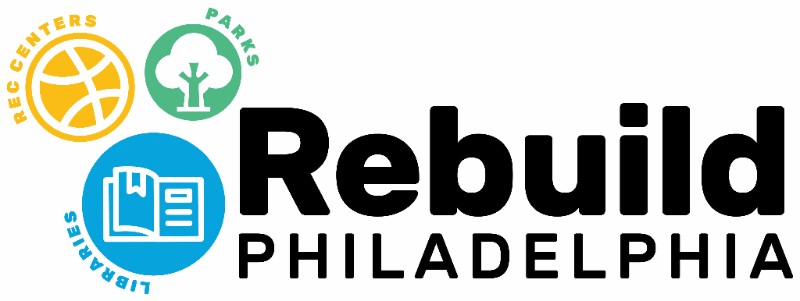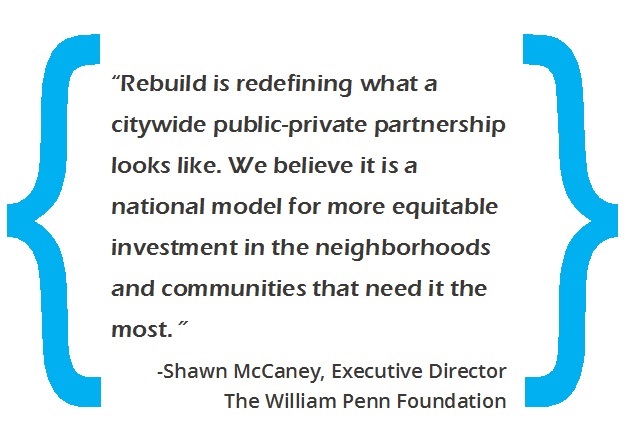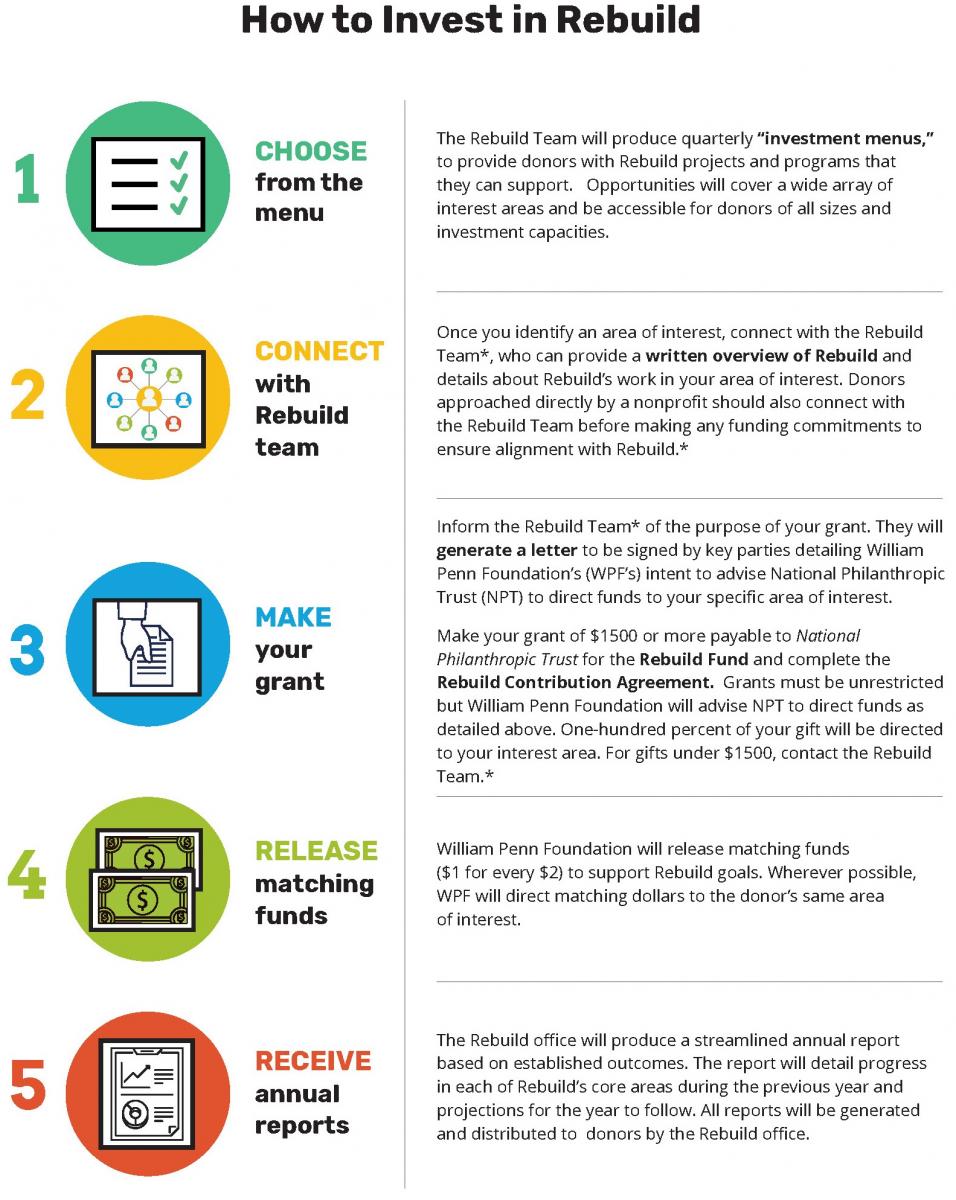
Rebuilding Community Infrastructure (Rebuild) is Mayor Jim Kenney’s visionary initiative to invest hundreds of millions of dollars in neighborhood parks, recreation centers and libraries in the City of Philadelphia. Through these investments, Rebuild will improve public spaces, empower and engage communities, and promote diversity and economic opportunity in the design and construction industries.
At its core, Rebuild has three components:
Physical improvements: When selecting which sites to invest in, Rebuild’s primary goal is to promote equity by investing in neighborhoods with high rates of poverty, health risks, or drug crimes. Rebuild is also focusing on sites where investment could help to stabilize or revitalize a community as well as sites that have urgent physical needs.
Community engagement and empowerment: Rebuild believes that the voice of residents is vital to the process of investing in a community. Rebuild will work with residents so they can inform what types of improvements will be made to their facility. Rebuild will also make investments to build the capacity of the neighborhood volunteer groups (e.g., friends groups, etc.) that support the parks, recreation centers, and libraries in their communities in addition to the frontline staff who work with community members every day.
Diversity and economic inclusion: If Rebuild is going to transform our public spaces, the people working on Rebuild projects should reflect Philadelphia’s diversity. Rebuild’s goal is to serve as a model for diversity and economic inclusion by hiring local, ensuring that the contractors and workforce on Rebuild projects are diverse, improving access to the building trades for women and minorities, and creating opportunities for small, local businesses to grow.
Visit the Rebuild website to learn more about Rebuild’s goals.
As a joint public and private partnership, Rebuild will require the support and commitment of both government and philanthropy. To realize its full potential, Rebuild must still raise additional funds. Every additional dollar raised will allow Rebuild to deliver more improvements in Philadelphia communities, serve more people, and grow more local businesses.
Given the strong interest among members, Philanthropy Network Greater Philadelphia is committed to working with the City of Philadelphia to encourage philanthropic engagement and investment in Rebuild. In 2017, with the support of William Penn Foundation and the John S. and James L. Knight Foundation, Philanthropy Network led the development of the investment framework, guided by the Rebuild Leadership Group, a group of Philanthropy Network members leading efforts to engage the philanthropic community in Rebuild.
The first Rebuild sites have been selected and work is underway. See the full list of sites here and visit the Rebuild Map for more information.
Rebuild Leadership
Philanthropy Network Greater Philadelphia is grateful to the members of the Rebuild Leadership Group who devoted time and expertise to the development of the Rebuild investment framework. They are:
Kimberly Allen, Wells Fargo Regional Foundation
Helen Davis Picher, National Philanthropic Trust
Ashley Del Bianco, City of Philadelphia
Paul DiLorenzo, Casey Family Programs
Cara Ferrentino, William Penn Foundation
Mimi Iijima, Pennsylvania Humanities Council
Christina Kind, Patricia Kind Family Foundation
Jennifer Leith, The Alfred and Mary Douty Foundation
Samantha Matlin, Scattergood Foundation
Shawn McCaney, William Penn Foundation
Patrick Morgan, John S. and James L. Knight Foundation
Michael Norris, Greater Philadelphia Cultural Alliance
Kristi Poling, The Barra Foundation (Chair)
Joe Pyle, Scattergood Foundation
Susan Segal, Lincoln Financial Foundation
Thanks also to members of the City of Philadelphia's Rebuild Team for their partnership:
David Gould, Deputy Director, Community Engagement and Communications
Timothy Roundtree, Deputy Director, Diversity Inclusion
Kira Strong, Executive Director

